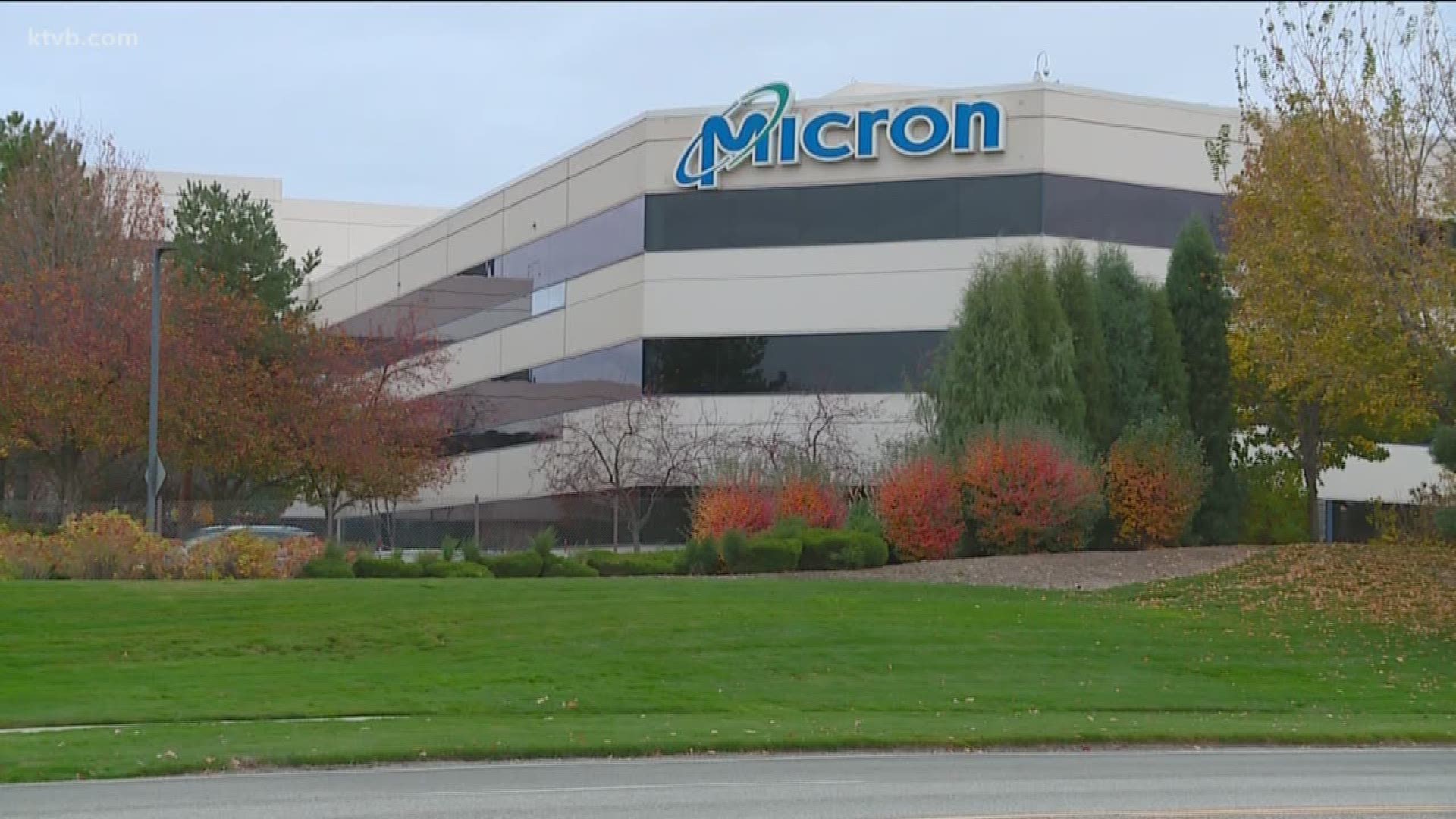WASHINGTON — The Justice Department revealed Thursday that a federal grand jury has charged companies in China and Taiwan with a scheme to steal trade secrets from Micron, the Boise-based firm that controls up to a quarter of the dynamic random access memory industry.
Federal prosecutors said one of the defendants served as president of a company acquired by Micron five years ago. The charges said he went to work for the Taiwan company, United Microelectronics Corporation, and orchestrated the theft of trade secrets from Micron worth nearly $9 billion.
That company, the charges said, then partnered with a Chinese state-owned business, Fujian Jinhua Integrated Circuit Company, so that China could steal the technology from the United States. The random-access technology involved was not possessed by the Chinese until very recently, the Justice Department said.
This week, the Commerce Department took action to block the Chinese company from buying goods and services in the United States, to keep it from profiting from the technology it stole. And the Justice Department filed a civil lawsuit, seeking a court order that would block the Chinese and Taiwan companies from transferring the stolen technology or exporting products to the U.S. based on it.
"We are not just reacting to crimes. We are acting to block the defendants from doing any more harm to Micron," Attorney General Jeff Sessions said in announcing the charges. "This theft is not just wrong; it poses a grave threat to our national security. And it is unlawful."
Sessions said he was setting up a task force in the Justice Department to devote more resources to fighting Chinese economic espionage.
"As this and other recent cases have shown, Chinese economic espionage against the United States has been increasing — and it has been increasing rapidly. We are here today to say: enough is enough. We're not going to take it anymore. It is time for China to join the community of lawful nations. International trade has been good for China, but the cheating must stop," he said.
Micron is worth an estimated $100 billion and has a competitive edge in the dynamic random-access memory (DRAM) field. They control 20-25 percent of the DRAM industry largely due to its intellectual property and trade secrets that include confidential, detailed information on the design, development and manufacturing of advanced d-ram products. DRAM is a memory storage device used in computer electronics. Micron is the only United States-based company that manufactures DRAM, according to the Department of Justice (DOJ).
“When it comes to technology like this it costs billions and billions of dollars to develop,” long-time Boise financial expert, Dave Petso of Petso Financial, said. "Micron has constantly complained about theft of their technology. And once in a while, they'll get something done but not much. This is very serious."
The DOJ says prior to the events described in the indictment, China did not have DRAM technology, and the Chinese government publicly identified the development of DRAM and other microelectronics technology as a national economic priority.
Stealing trade secrets, economic espionage, intellectual property theft - all crimes committed by Chinese firms against American companies that aren't always caught. Idaho-based Micron Technology, Inc. is allegedly the latest target of a scheme by the Chinese.
"No country presents a broader, more severe threat to our ideas, our innovation, and our economic security than China," FBI Director Christopher Wray said Thursday. "The Chinese government is determined to acquire American technology, and they’re willing to use a variety of means to do that – from foreign investments, corporate acquisitions, and cyber intrusions to obtaining the services of current or former company employees to get inside information. If China acquires an American company's most important technology – the very technology that makes it the leader in a field – that company will suffer severe losses, and our national security could even be impacted. We are committed to continuing to work closely with our federal, state, local, and private sector partners to counter this threat from China."
"To understand why this is such a big deal: the Chinese can't make these chips. They're just too hard to make,” Petso said. “So instead of trying to develop it on their own, they're stealing the technology to try to develop it.”
"The Chinese are willing to spend billions of dollars - hundreds of billions of dollars if necessary - to build their own chip industry, which means now they compete directly against Micron with the stolen technology. No, that's not gonna fly," Petso added.
Petso - who has deep knowledge of the 40-year-old company - says Micron is constantly fighting to keep a competitive, dominant hold on the industry while also battling corporate espionage and threats to their innovative designs, development process and manufacturing.
“It's impossible to quantify what does it mean to lose intellectual property to somebody else that's now able to jump ahead and be a direct competitor with you because they now have your technology,” Petso told KTVB.
He praised the administration's crackdown on China.
"If they do it on their own that’s the free marketplace, but if you do it by stealing that’s not right and we need to stop it. And I'm really glad they stepped up and did that today. And I think it's very good for Micron,” Petso added.
Joel Poppen, senior vice president, legal affairs, general counsel and corporate secretary at Micron issued the following statement Thursday afternoon:
"We appreciate the U.S. Department of Justice's decision to prosecute the criminal theft of our intellectual property. Micron has invested billions of dollars over decades to develop its intellectual property. The actions announced today reinforce that criminal misappropriation will be appropriately addressed."

